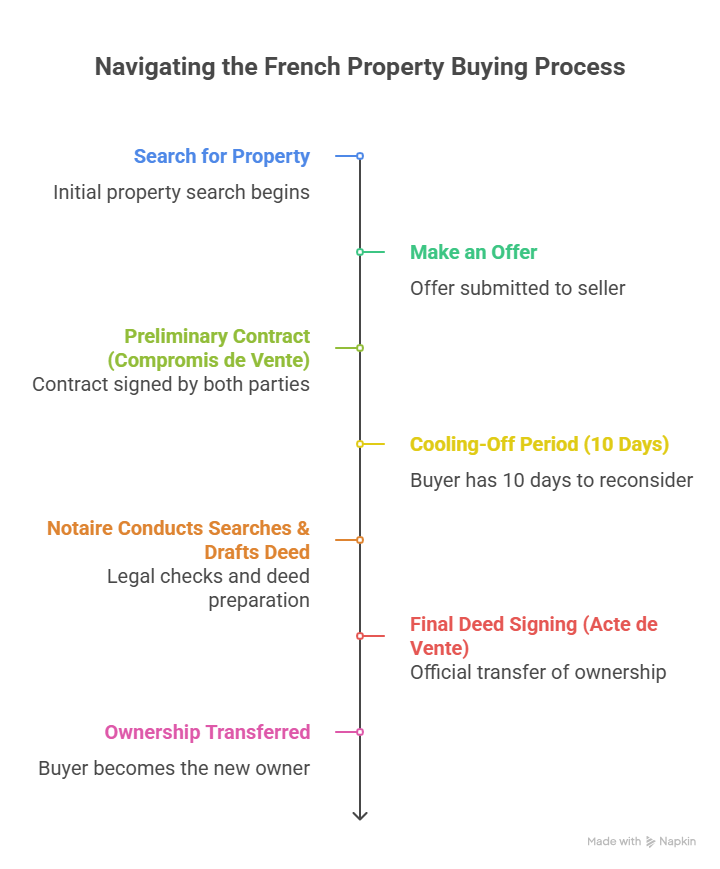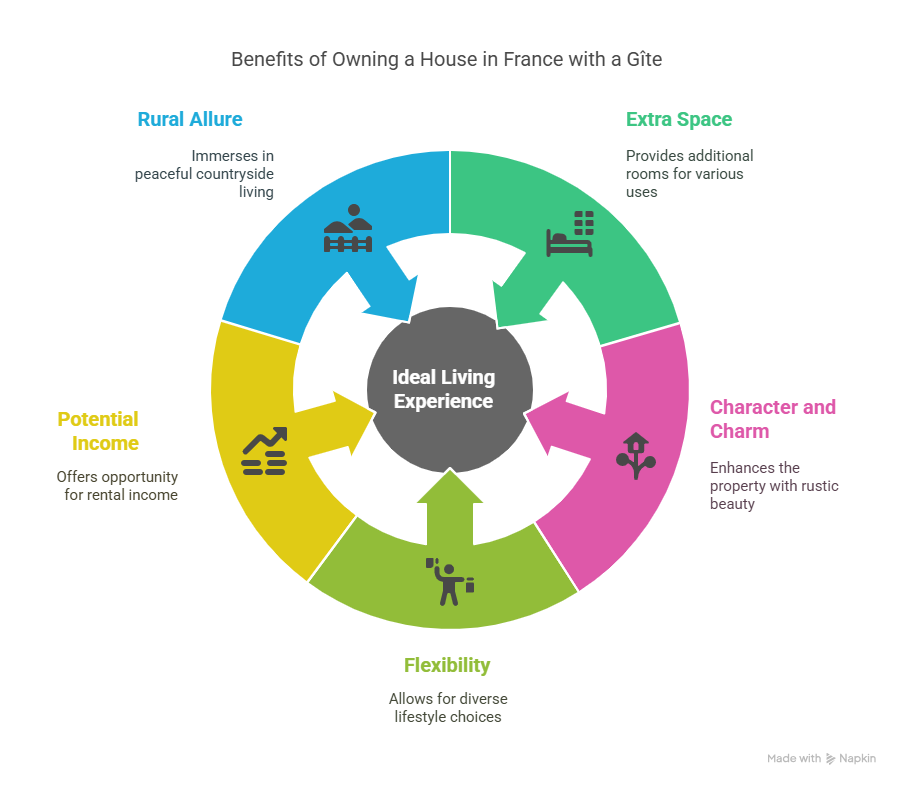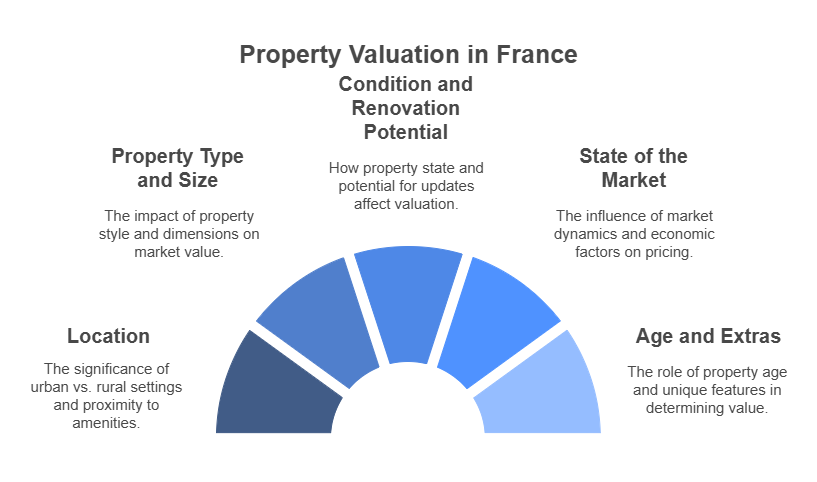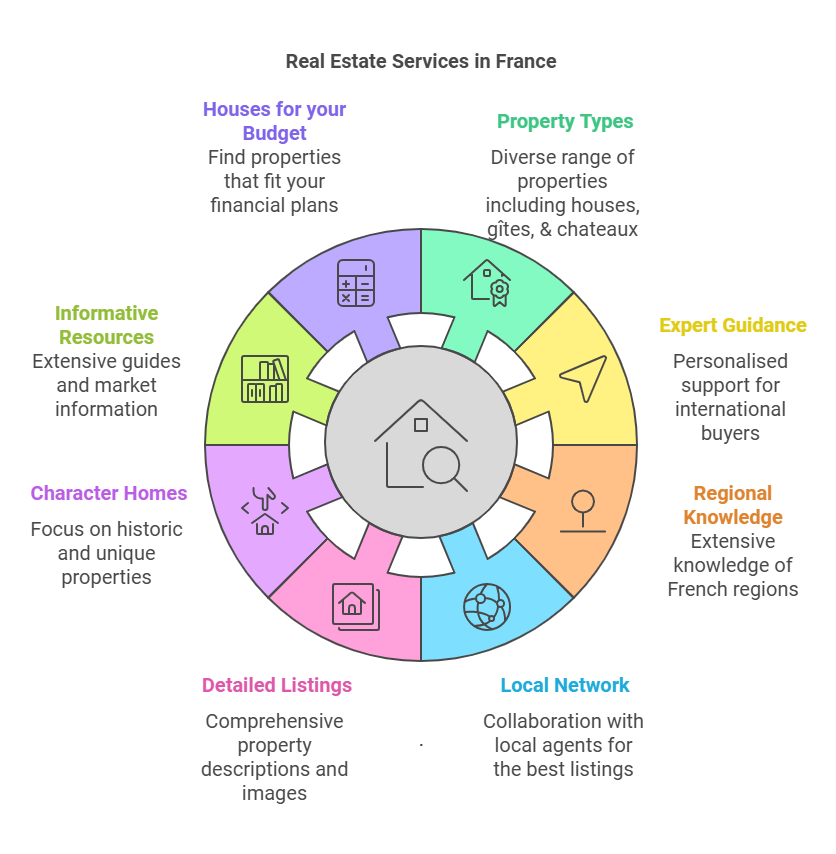French Property for Sale – Your Complete Guide to Buying in France
Discover the Allure of French Property
France offers a diverse and richly rewarding property market, attracting thousands of international buyers each year. From charming stone cottages in the Dordogne to luxurious ski chalets in the Alps, the range of property types, price points and lifestyles is unrivalled. Whether you’re dreaming of a peaceful rural retreat, a lock-up-and-leave holiday home, or a full relocation, France remains one of the most attractive destinations in Europe to buy property.
👉 Browse all properties for sale in France
Why Buy Property in France?
- Stable Legal Framework: France has one of the most transparent and buyer-friendly property systems in Europe.
- Excellent Healthcare and Infrastructure: Modern roads, high-speed rail, and access to world-class medical care.
- Rich Culture and History: Picturesque villages, medieval towns, vibrant cities, and renowned cuisine.
- Affordable Luxury: Compared to the UK, many properties in France offer more space and character for your money.
- Investment Opportunity: Increasing demand in sought-after regions ensures long-term growth potential.
Where to Buy Property in France: Popular Regions
Nouvelle-Aquitaine
Encompassing the Charente, Dordogne, and coastal gems like La Rochelle and Biarritz, Nouvelle-Aquitaine is a perennial favourite with British buyers. Known for its sun-drenched vineyards, market towns, and relaxed lifestyle.
👉 Explore property for sale in Charente
Occitanie
Spanning the Mediterranean to the Pyrenees, Occitanie includes the Languedoc-Roussillon and Midi-Pyrénées. Popular for its warm climate, Roman heritage, and excellent value-for-money homes.
Brittany and Normandy
Easily accessible from the UK, these northern regions offer coastal properties, rural farmhouses, and lively local communities. Perfect for second homes or permanent relocations.
Provence-Alpes-Côte d’Azur (PACA)
From lavender fields to the Riviera coastline, PACA is synonymous with luxury living. Prices are higher, but so is rental demand, especially in Cannes, Nice, and Saint-Tropez.
The French Alps
A haven for winter sports lovers. Properties in resorts like Chamonix, Méribel, and Morzine are in high demand.
👉 View ski chalets and alpine property for sale
Types of Property Available in France
- Village Houses: Typically stone-built, character-filled, and centrally located.
- Farmhouses (Maisons de Campagne): Often with outbuildings and land, perfect for renovation.
- Châteaux: Grand estates ranging from affordable fixer-uppers to turnkey luxury.
- Ski Chalets: High rental income potential, especially in dual-season resorts.
- New Builds: Energy-efficient and low-maintenance, ideal for investors or retirees.
- Apartments: Especially prevalent in cities and ski resorts, offering easy access and lower overheads.
👉 Browse stone houses and traditional French homes
👉 Discover renovation properties and opportunities
The Buying Process in France – Step-by-Step

Costs Involved in Buying French Property
- Notaire Fees: 6–8% for existing homes; lower for new builds.
- Agency Fees: Usually included in the sale price; check who is responsible.
- Registration Taxes: Part of notaire fees for older properties.
- Legal Fees: Additional legal advice, if required.
- Survey Costs: Optional but recommended for older properties.
Mortgages and Finance Options
French banks offer mortgages to non-residents. Typically, they will lend 70–80% of the property’s value, subject to affordability checks.
Currency Exchange: Protecting Your Budget
Fluctuations in exchange rates can significantly affect your final purchase cost. Consider using a specialist currency transfer service.
👉 Tips for managing currency and overseas payments
Owning a Property in France: What to Expect
Taxes
- Taxe Foncière
- Taxe d’Habitation
- Income Tax (on rental income if applicable)
Renting Out Your Property in France
France has clear regulations for both short and long-term lets.
Selling Property in France
👉 Request a free property valuation
Begin Your French Property Journey Today
Whether you’re looking for a quiet country house, a coastal retreat, a mountain chalet or a vibrant city apartment, our team is here to guide you through every stage of the buying process.
Explore our curated listings and take the first step towards owning your dream home in France.
👉 View all French properties for sale
👉 Contact our team of English-speaking experts


